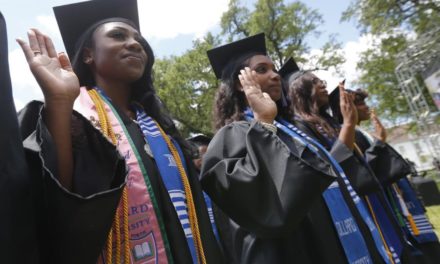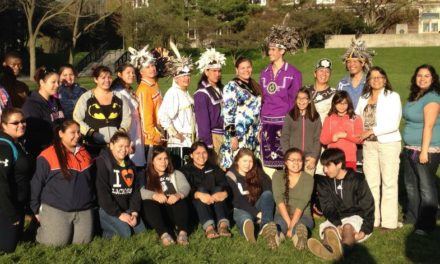
A DIVERSITY RECRUITMENT PARTNER
University of Minnesota-Twin CitiesMinneapolis, MN
We live in a time of great possibility, but that possibility cannot be realized until we all share the responsibility of creating an equitable and respectful climate. More than just an exercise in enrichment, we believe diversity is necessary to doing our best work and fostering our humanity. That’s why the College of Education and Human Development (CEHD) community is collectively dedicated to cultivating an inclusive and equitable environment. We aim to weave these core values into the work of each department and all of our administrative policies and practices.
CEHD is a distinctly urban campus – a rarity for a large research institution. We are deeply engaged with our surrounding community, and our students are encouraged and empowered to address inequities, inspire change, learn and grow personally, and prepare professionally to encounter and engage in systemic transformation.
Our Mission
To facilitate and advocate for excellence in graduate education and postdoctoral training
Our Values
Our values define who we are. They provide the foundation for our work. They guide our actions and behavior. They influence the way we work with each other—and the way we engage with our constituents.
Quick Info
About Our College of Education and Human Development (CEHD)
Since 1905, we’ve provided graduate students with access to the information, resources, and support they need for a successful and rewarding graduate education experience. We’ll work with you along every step of your journey to guide you through the admissions process, help you find grant and fellowship opportunities, develop your professional skills, and connect you with other students.
Fostering a diverse and vibrant community of students and scholars is essential to our work and allows us to achieve our goal to equip you to lead, collaborate, develop new ideas, and address complex challenges in a way that advances academia, industry, our culture, and the global society.
Leadership
We believe everyone has the capacity to be a leader and it is our job to enable everyone we interact with to achieve their leadership potential—whether students, postdocs, or staff and faculty. We act as catalysts for change and lead by example as we pursue a shared vision.
Faculty of Color
Faculty of color and faculty researching topics in diversity and equity
23% of CEHD’s faculty identify as faculty of color, and as a college committed to creating a more equitable and just world, we have many other faculty members researching issues in equity and inclusion.
Our Programs
The Master of Education (M.Ed.) is a professional degree for teachers and those who work in health sciences, social services, community education, and business or industry. The curriculum is based on the work done as teachers, leaders, and change agents in formal, non-formal, and community-based settings. Core courses are delivered primarily online with one face–to–face weekend session during the first month of each semester. This hybrid model makes earning a M.Ed. accessible while maintaining full-time employment.
The Ed.D. with a major in Teaching and Learning is an applied degree for the professional development of P-12, community college and university faculty and administrators, professionals in other human service professions such as coaching, athletic training, criminal justice, social work, extension, community agency administration, and university student personnel, as well as business professionals involved in education and training activities. The mission of the program is to produce scholarly practitioners.
DOVE Fellowship
The Diversity of Views and Experiences (DOVE) Fellowship Program seeks to assist graduate programs to promote a diversity of views, experiences, and ideas in the pursuit of research, scholarship, and creative excellence. This diversity is promoted through the recruitment and support of academically excellent students with diverse ethnic, racial, economic, and educational backgrounds and experiences as suggested in the review/selection consideration list. Programs are encouraged to consider students from groups that have been underrepresented in their graduate programs.
Approximately fifteen fellowships are available. The award includes a stipend of $25,000, academic-year tuition at the general graduate rate for up to 14 credits per semester, subsidized health insurance, and dental care for the academic year and for summer 2021. Note: Fellows are responsible for all other fees or charges and tuition beyond 14 credits (general graduate rate).
Diversity & Inclusion
We affirm the contributions of all people in our community. Diversity and equity are at the core of our mission in the College of Education and Human Development.
We explicitly reject bias, discrimination, and exclusion on the basis of race, color, creed, religion, national origin, gender, age, marital status, disability, public assistance status, veteran status, sexual orientation, gender identity, or gender expression.
We all are responsible for recognizing, confronting, and addressing bias and discrimination and diligently working for positive change in support of equity and diversity.
Video – Every Face, A Promise
Our Dean
We are committed to providing you with a strong graduate community that embraces diversity and inclusivity, drives innovation, and helps you achieve intellectual excellence.
Get In Touch
College of Education and Human Development
104 Burton Hall
178 Pillsbury Dr. S.E.
Minneapolis, MN 55455
Telephone: 612-626-9252
Email: cehd@umn.edu
Hours: M-F: 8am – 5pm
Non-Discrimination Policy
Our policy is to make decisions concerning applicants, students, faculty, and staff on the basis of the individual’s qualifications to contribute to our educational objectives and institutional needs. The principle of not discriminating against individuals based on characteristics such as race, color, national or ethnic origin, age, religion, gender, gender identity, sexual orientation, political beliefs, veteran status, or disability unrelated to job or course of study requirements is consistent with the purposes of a university and with the law.







